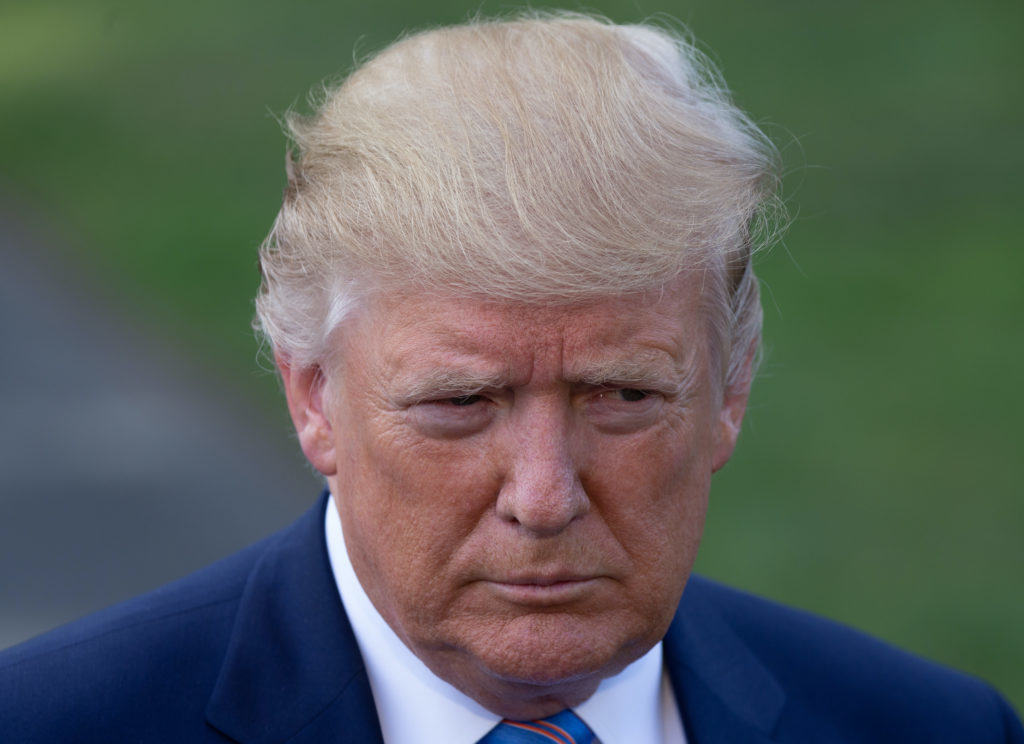Donald Trump’s Reichstag moment

In their 1976 book “The Final Days,” Bob Woodward and Carl Bernstein depict a bereft and demoralized Richard Nixon who famously (and drunkenly) addressed portraits of former presidents and who invited a mortified Henry Kissinger to pray with him on his knees. What was at the time a shocking revelation of a dispossessed man in his final agonies, it was nevertheless a human response. Nixon’s sins, if they could be called that, were largely of the ordinary, internal kind.
In their soon to be released book, “I Alone Can Fix It: Donald J. Trump’s Catastrophic Final Year,” Carol Leonnig and Philip Rucker tell a different kind of story. It’s the story of a man who saw that the end of his presidency was coming as clearly as Nixon saw his, but who met his fate without Nixon’s understanding of the presidency’s limitations. Nixon, who spent most of his adult life in politics as a Congressman and Senator and Vice President and finally as President, understood and respected the limitations of his office in a way Trump could not. Trump who spent his life as a grifter had no conscience about his methods for retaining power.
Mark A. Milley, chairman of the Joint Chiefs of Staff, grew more and more nervous in the waning weeks of Donald Trump’s final and only term. Milley, who was the country’s top military leader, worried about what Trump would do to maintain power after losing reelection. Milley compared Trump’s rhetoric with Adolf Hitler’s and wondered to confidants if a coup was forthcoming. He feared that Trump and his acolytes might try to use the military to stay in office. “This is a Reichstag moment,” Milley told aides, according to the book.
Milley attracted a great deal of criticism last year when he appeared alongside Trump in Lafayette Square after protesters were forcibly cleared from the area. It was perhaps one of Trump’s most personally disastrous decisions to appear in front of a church holding aloft (and upside down) a Bible. Milley later came out and publicly apologized for his part in that incident. Milley was also becoming increasingly alarmed at Trump’s behavior, a behavior that the General characterised more and more as fascistic.
After attending a security briefing about the “Million MAGA March,” Milley said he feared an American equivalent of “brownshirts in the streets,” referring to the paramilitary forces that protected Nazi rallies and enabled Hitler’s rise to power. According to the book an old friend later called Milley to express concerns that those close to Trump were attempting to “overturn the government.” “You are one of the few guys who are standing between us and some really bad stuff,” Milley’s friend said. A shaken Milley then called in former national security adviser H.R. McMaster to ask whether a coup was actually imminent.
Fortunately no coup was forthcoming, and it is unclear whether or not it was even possible. The most Trump could do — and it was bad enough — was to incite an attack on the Capitol on January 6th of this year. Certainly it would have required a man far more competent than Trump to pull off an actual coup.
And therein lies the actual worry, because Trump has now shown the way. There are millions of Americans who would elect such a man or woman, someone who would not only abuse the power of the presidency, but might possess the necessary cunning and charisma to transform the office into a fascistic dictatorship. Leonig and Rucker’s book comes out on July 20th. And, as ever, ladies and gentlemen, brothers and sisters, comrades and friends, stay safe.

Robert Harrington is an American expat living in Britain. He is a portrait painter.
